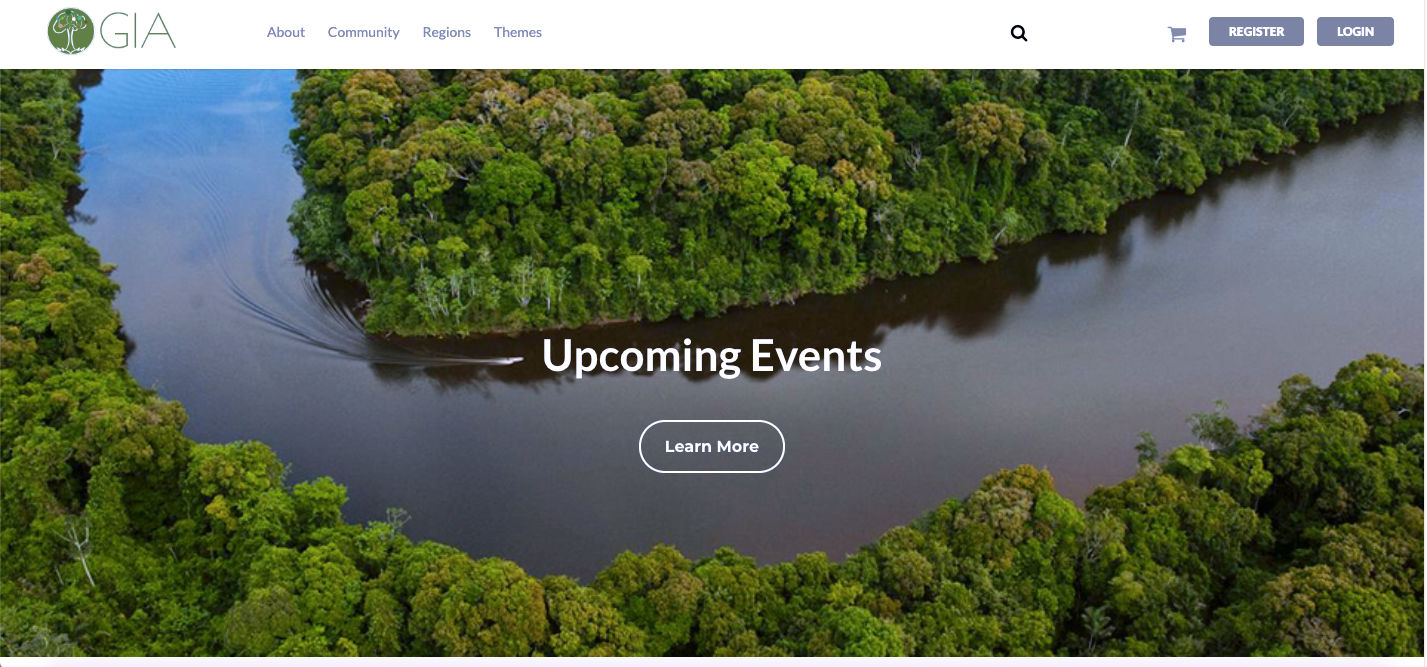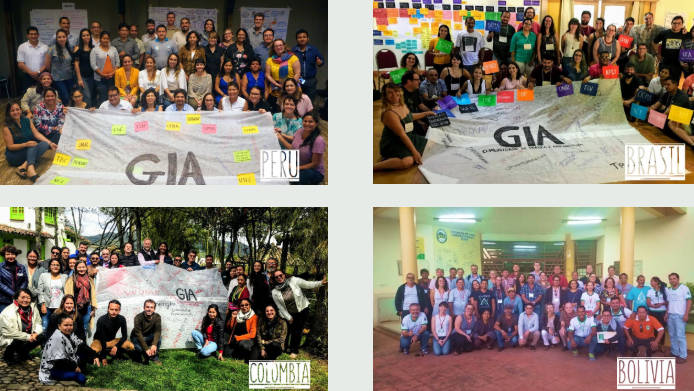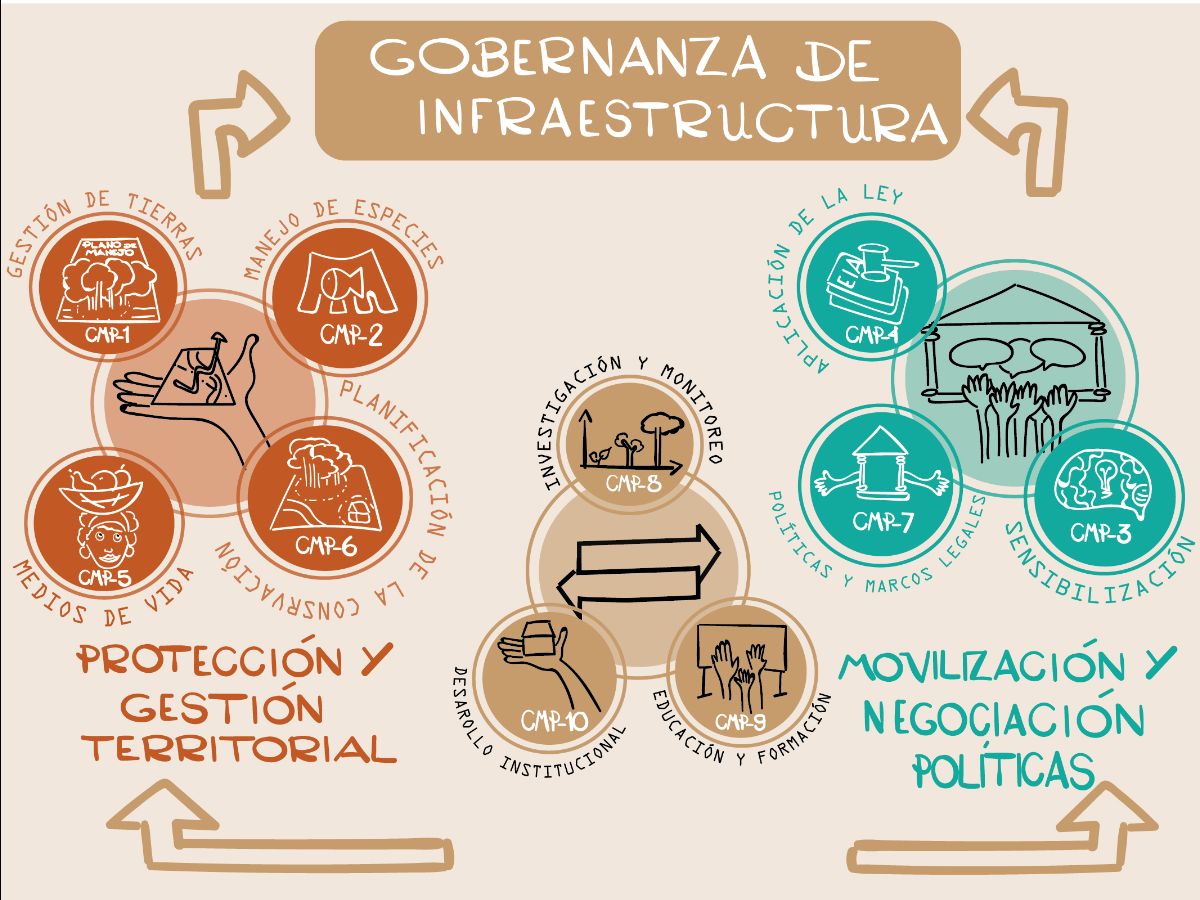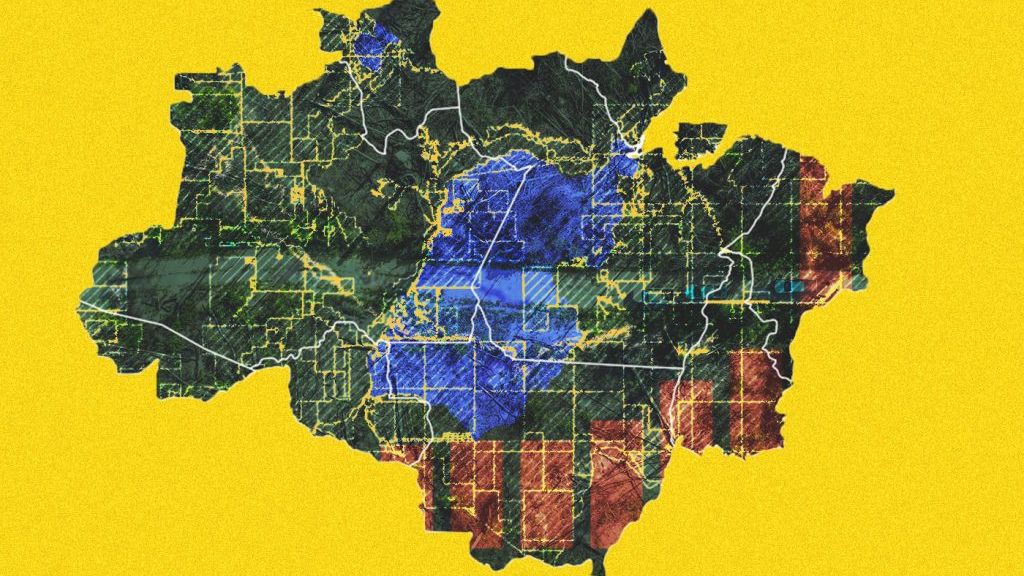Welcome to our first Newsletter
We invite you to get informed about the Governance and Infrastructure in the Amazon (GIA) network through this newsletter. GIA is led by the University of Florida Tropical Conservation and Development Program and aims to create, strengthen and expand a Community of Practice and Learning (CoP-L) for exchanges of experiences and reflection on the use of tools and strategies for infrastructure governance by conservation and development practitioners in the Amazon.

This collective learning process involves several key stakeholders from the Pan-Amazon (Bolivia, Brazil, Colombia, and Peru) in networking, training, and research to improve social-environmental governance and reduce threats from infrastructure projects, especially dams, roads, and waterways. Four mosaics containing protected areas and indigenous territories were chosen for the project’s first phase, Colombian Amazonia (Colombia), Loreto (Peru), Alto Madera (Bolivia/Brazil), and Southern Amazonas/North of Rondônia (Brazil).
During GIA’s first year, four workshops were carried out between May and September 2019 to promote within- and cross-mosaic learning and collaborative activities. A total of 110 individuals from 70 organizations participated. Activities held during the workshops helped identify several emergent themes from each mosaic as well as tools and strategies to tackle infrastructure projects.

- Integrated conservation strategies — incorporating communication and protest, law enforcement, and legal and policy approaches — aimed at political mobilization and negotiation.
- Potential synergies between grassroots organizations and other kinds of organizations.
- Complementary conservation actions, such as research and capacity-building, that support and strengthen the previously listed conservation strategies.
GIA WEBINAR
Thank you all who participated in the GIA webinar on Preliminary Assessment of the Effectiveness of Conservation Strategies to Address Infrastructure Governance in the Amazon held on 27 March 2020 and delivered by Bob Buschbacher, GIA Coordinator at the University of Florida.
We had a large turnout at the webinar, 163 participants from five different countries (Bolivia, Colombia, USA, Peru and Brazil) representing a diverse group of academia, community, NGOs and government representatives. If you haven’t already taken the evaluation survey, please spend 2 minutes to complete it and provide your feedback. Your contribution is important to us!
We received very interesting comments and we plan to dedicate time and space within GIA’s agenda to follow-up these discussions. For example, questions and suggestions were offered about: how to build legal capacity in grassroots organizations with the help of public defenders, lawyers and universities; how research and organizational strategies (i.e. capacity-building) can effectively strengthen infrastructure governance efforts based on political mobilization and negotiation; and possibilities for strengthening alliances between academia, NGOs and communities.
As a next step, we will have a virtual discussion in each mosaic to address in greater detail the characteristics of the assessment, other studies carried out in 2019, and how groups can continue to work together in 2020.
Mosaic Alto Madera/Bolivia y Brasil: April 17th
Mosaic Amazonia Colombiana: April 24th
Mosaic Sur de Amazonas/Norte de Rondonia, Brasil: April 15th
Mosaic Loreto, Perú: April 21st


Learn more about news and events in the GIA Regional Mosaics!
Brazil – Mining on indigenous land with name, surname, and CNPJ
An unprecedented survey carried out by Pública, based on data from Funai and the National Mining Agency (ANM), not only reveals the name, surname, and CNPJ of individuals and companies with more mining orders in Indigenous Lands, but also reveals an increase in mining exploration processes in these areas in 2019, reversing the downward trend of recent years. More information here









